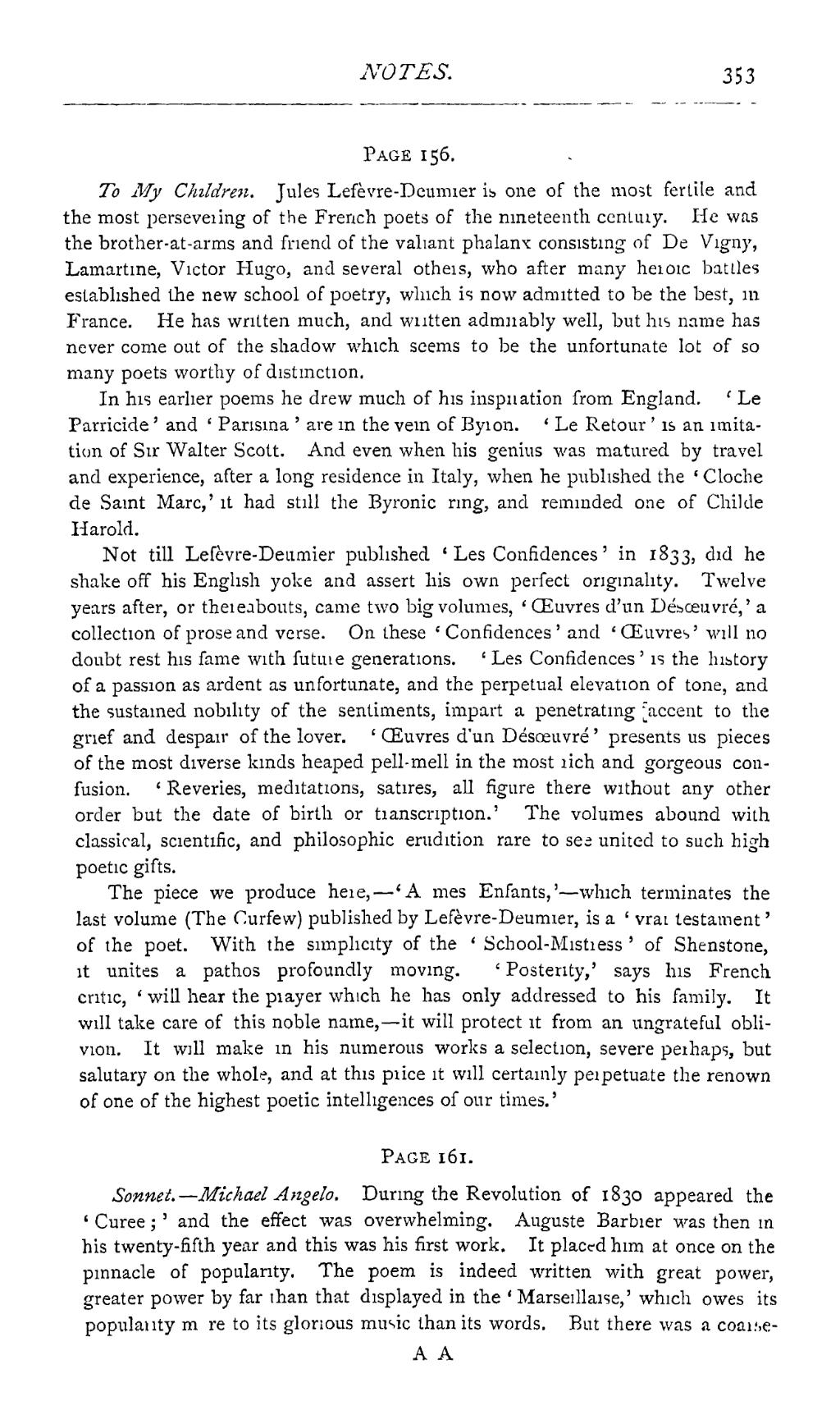Page 353.
To My Children. Jules Lefèvre-Deumier is one of the most fertile and the most persevering of the French poets of the nineteenth century. He was the brother-at-arms and friend of the valiant phalanx consisting of De Vigny, Lamartine, Victor Hugo, and several others, who after many heroic battles established the new school of poetry, which is now admitted to be the best, in France. He has written much, and written admirably well, but his name has never come out of the shadow which seems to be the unfortunate lot of so many poets worthy of distinction.
In his earlier poems he drew much of his inspiration from England. 'Le Parricide' and 'Parisina' are in the vein of Byron. 'Le Retour' is an imitation of Sir Walter Scott. And even when his genius was matured by travel and experience, after a long residence in Italy, when he published the 'Cloche de Saint Marc,' it had still the Byronic ring, and reminded one of Childe Harold.
Not till Lefèvre-Deumier published 'Les Confidences' in 1833, did he shake off his English yoke and assert his own perfect originality. Twelve years after, or thereabouts, came two big volumes, 'Œuvres d'un Désœuvré,' a collection of prose and verse. On these 'Confidences' and 'Œuvres' will no doubt rest his fame with future generations. 'Les Confidences' is the history of a passion as ardent as unfortunate, and the perpetual elevation of tone, and the sustained nobility of the sentiments, impart a penetrating accent to the grief and despair of the lover. 'Œuvres d'un Désœuvré' presents us pieces of the most diverse kinds heaped pell-mell in the most rich and gorgeous confusion. 'Reveries, meditations, satires, all figure there without any other order but the date of birth or transcription.' The volumes abound with classical, scientific, and philosophic erudition rare to see united to such high poetic gifts.
The piece we produce here,—'A mes Enfants,'—which terminates the last volume (The Curfew) published by Lefèvre-Deumier, is a 'vrai testament' of the poet. With the simplicity of the 'School-Mistress' of Shenstone, it unites a pathos profoundly moving. 'Posterity,' says his French critic, 'will hear the prayer which he has only addressed to his family. It will take care of this noble name,—it will protect it from an ungrateful oblivion. It will make in his numerous works a selection, severe perhaps, but salutary on the whole, and at this price it will certainly perpetuate the renown of one of the highest poetic intelligences of our times.'
Page 161.
Sonnet.—Michael Angelo. During the Revolution of 1830 appeared the 'Curee;' and the effect was overwhelming. Auguste Barbier was then in his twenty-fifth year and this was his first work. It placed him at once on the pinnacle of popularity. The poem is indeed written with great power, greater power by far than that displayed in the 'Marseillaise,' which owes its popularity more to its glorious music than its words. But there was a coarse-
